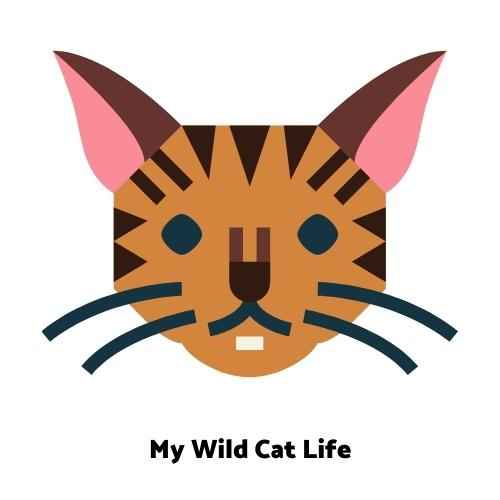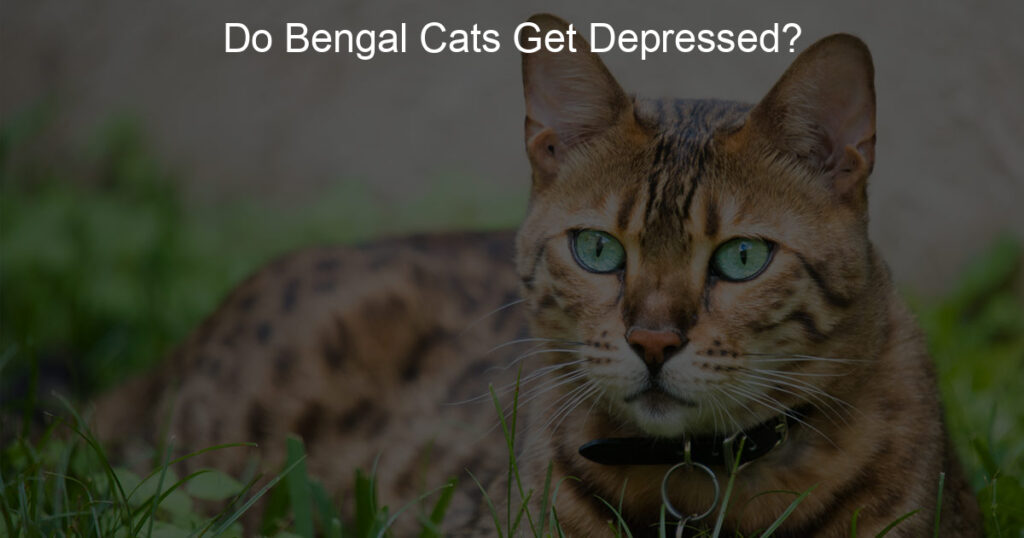Have you ever wondered if your Bengal cat gets depressed? After all, they are known for being lively and active cats. However, like all animals, Bengal cats can experience a range of emotions, including depression. So, do Bengal cats get depressed? Let’s take a closer look.
How do I know if my Bengal cat is depressed?
It can be difficult to diagnose if a Bengal cat is depressed since many of their behaviors are normal for cats. However, look out for signs like a lack of appetite, excessive sleeping, and a general decrease in activity level. A depressed Bengal cat may also start to hide away or act aggressively if you try to make contact with them.
If your Bengal cat begins exhibiting any of these behaviors, consider taking them to the vet for an examination. Your vet may have advice on how best to help your cat through its depression or connect you with resources that can assist further.
Do Bengals have anxiety?
Bengals are known for their unique beauty, common in both small and large cats. Interestingly, there has been an ongoing debate as to whether these cats suffer from anxiety or not. While some people argue that because they are considered to be more of an independent species, they do not struggle with being anxious, others suggest exactly the opposite; due to their high-energy nature, Bengals may be more prone to experiencing anxiety than other breeds.
Ultimately, the answer lies with each individual cat and its circumstances which will determine the level of anxiousness that it experiences. Whatever the result may be, it is important to provide owners with resources and information on how to recognize and cope with any potential signs of anxiety in their beloved pet.
Do Bengal cats have behavior issues?
Many people have heard the tales of Bengal Cat’s spirited personalities and wonder, do these cats have behavior issues? Of course, every individual cat is unique – Bengal Cats included. Generally speaking, however, that same spirit that defines the breed has a tendency to show itself in the form of excessive energy. This can manifest itself in mischievous behaviors such as climbing curtains or scratching furniture. To prevent behavior issues associated with their naturally energetic personalities, it is important to ensure owners are providing adequate mental stimulation and exercise opportunities for their Bengal cats.
Providing interactive toys as well as activity centers such as climbers and scratchers allows cats to channel their innate curiosity in positive ways. With this healthy outlet of expression, owners can enjoy being around their high-spirited Bengal without worrying they will act out due to a lack of mental stimulation.
Are Bengal cats emotional?
Bengal cats have gained notoriety for their distinctive physical characteristics and are known to be gentle and playful. But what about their emotional capacities? Well, the answer is a resounding yes – Bengal cats are known to be highly emotional animals. They teach us that affection isn’t just about purring or cuddling; it’s about mood, attitude, and behavior. These felines express love differently than other cat breeds – they will share their hearts with those closest to them and can show great devotion.
In return, they require understanding and care from their pet parents. With time and patience, owners can create a strong bond with these expressive cats based on trust and mutual understanding. The companionship shared between these two species is indeed special!
How do Bengals show affection?
Bengals bond very deeply with their owners, and they have unique ways of showing affection. A typical greeting for a Bengal is loud and excitable purring. They also enjoy giving headbutts to their favorite people; this usually occurs when the individual is bending down to say hello.
Bengals crave attention from their family members, often jumping onto laps when a person sits down or cuddling up next to them in bed at night. Overall, Bengals are quite interactive cats and are eager to please their beloved owners with affection.
Do Bengal cats attach to one person?
Bengal cats are unique among domestic cats in that they tend to strongly attach themselves to just one individual, often bonding completely with one special person. While generally friendly and sociable with all members of the household, their attachment to their chosen person is often quite strong. In fact, you may find that your Bengal will be more affectionate towards its favorite human than towards other family members.
They often enjoy being picked up and groomed or participating in activities together, such as playing fetch or learning tricks. Overall, Bangle cats have a well-deserved reputation for being loyal companions and devoted friends to those they form strong bonds with.
Summary: Do Bengal Cats Get Depressed?
In conclusion, Bengal cats can indeed suffer from depression just like any other cat breed. However, if you properly care for and give your pet enough attention and stimulation, you can help to reduce their risk of depression. It’s important to remember to provide your Bengal with a healthy diet, get them regular vet checkups, and plenty of enrichment activities that allow them to express their natural hunting behaviors.
Finally, it’s best if you keep your Bengals indoors so they remain safe from the dangers of the outside world and experience more meaningful interactions with their human guardians. If all these things are done on a regular basis and your cat still seems down, then it may be time to consider mental health services from a trained professional for further guidance and support.














